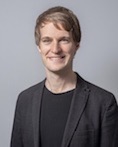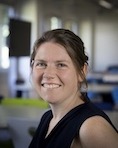Keynotes
Prof. Dr. Garvin Brod

DIPF | Leibniz Institute for Research and Information in Education, Frankfurt, Germany
Personal Website
Understanding and Promoting Conceptual Change Using Bayesian Computational Modelling
Understanding when and how learners change their concepts in response to conflicting evidence is a key goal of our field. In my talk, I will first present attempts to model conceptual change at an individual level using mathematical modeling. Bayesian computational modeling makes it possible to capture learners’ prior beliefs in great detail. It also allows us to compare how learners revise their beliefs in response to conflicting evidence with what a rational actor should optimally do based on probability theory. Second, I will present studies in which we have tested whether generating explicit predictions facilitates learners’ belief revision and, ultimately, conceptual change in the domain of physics. Here, Bayesian computational modeling is used to evaluate success of the intervention. Finally, I will discuss future applications and limitations of this approach.
Prof. Dr. Fien Depaepe

KU Leuven, Belgium
Personal Website
Affordances of educational technology to develop students’ conceptual learning
Prof. Dr. Erno Lehtinen

University of Turku, Finland
Personal Website
Can educational games enhance conceptual change?
Regular teaching often fails to help students overcome misconceptions. Many intervention programs have been shown to be more effective at supporting conceptual change than conventional teaching, but many students still possess long-standing misconceptions about science and mathematics. The traditional theories of conceptual change, which assume the fast replacement of misconceptions with correct scientific knowledge, are not sufficient for supporting conceptual change in complex scientific and mathematical concepts. To achieve deep learning in these challenging topics, students must have insightful experiences and opportunities for long-lasting deliberate practice, which are difficult to arrange in traditional classroom settings. Educational simulations and games developed to support conceptual change provide promising prospects for novel teaching methods. The use of games can assist students in gaining a better understanding of why their preconceived ideas differ from the consequences of correct scientific concepts and provide opportunities for guided deliberate practice necessary for knowledge restructuring.